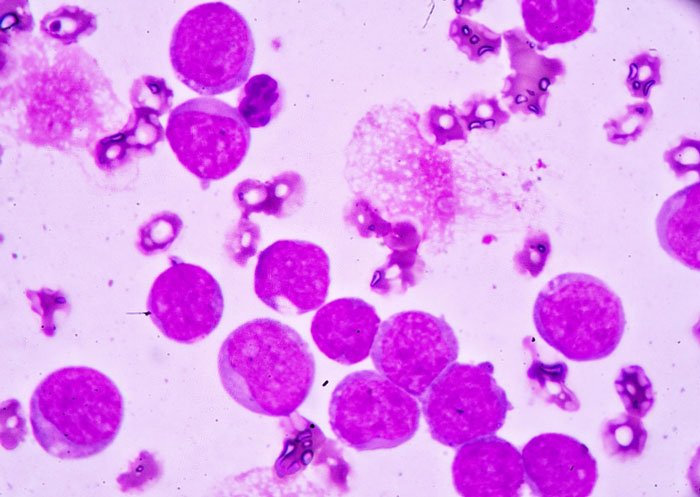CRISPR-based system identifies drug targets in AML
Posted: 12 March 2018 | Dr Zara Kassam (Drug Target Review) | No comments yet
Scientists have discovered a way to rein in an overactive protein that drives some aggressive leukaemias…


Scientists have discovered a way to rein in an overactive protein that drives some aggressive leukaemias. The renegade molecule, MEF2C, belongs to a class of proteins that is notoriously difficult to manipulate with drugs. But the new research suggests an opportunity to develop therapies against it.
MEF2C is a transcription factor–a regulatory protein that helps control the activity of certain genes. Its overactivity is implicated in about 15 percent of cases of acute myeloid leukaemia (AML), a rapidly progressing cancer of the blood and bone marrow that is often fatal.
Cold Spring Harbor Laboratory (CSHL) Associate Professor Christopher Vakoc, and colleagues now report that they can stop the growth of MEF2C-driven AML cells by blocking either of two target enzymes, known as LKB1 and salt-inducible kinase. The chemicals that the team used to interfere with the enzymes are small molecules that have the potential to be developed into drugs, Prof Vakoc says.
The discovery is the result of a broad search for potential therapeutic strategies against AML that began several years ago in Vakoc’s lab. In 2013, his team devised a system based on CRISPR gene editing tools that they used to screen large numbers of genes, seeking to discover their impact on cancer cell survival. “We just let the cancer cells tell us what types of genes they need in order to grow,” Prof Vakoc says.
Led by Yusuke Tarumoto, a postdoctoral researcher in Vakoc’s lab, the team has now deployed that technology against AML. Their screens revealed that LKB1 and salt-inducible kinase are critical for the survival of certain AML cells. The enzymes had not previously been linked to AML, but with further experiments, the team learned that both help controls the MEF2C transcription factor, which is a known cancer promoter.
“At the end of the project, we realised we’d had actually discovered a way to control a transcription factor,” says Prof Vakoc. That’s exciting, he says, because while most leukaemias are thought to be caused by wayward transcription factors, such proteins are among the most challenging to target with drugs.
The chemicals the team used to switch off LKB1 and salt-inducible kinase in their lab-grown cancer cells are not suitable as therapeutic compounds, but Prof Vakoc is optimistic that it will be possible to develop drugs that target these enzymes. Animal experiments are already underway in his lab to begin to investigate the strategy as a potential treatment approach.
Related topics
Disease research, Drug Targets
Related conditions
Leukaemia
Related organisations
Cold Spring Harbor Laboratory (CSHL)
Related people
Professor Christopher Vakoc, Yusuke Tarumoto


